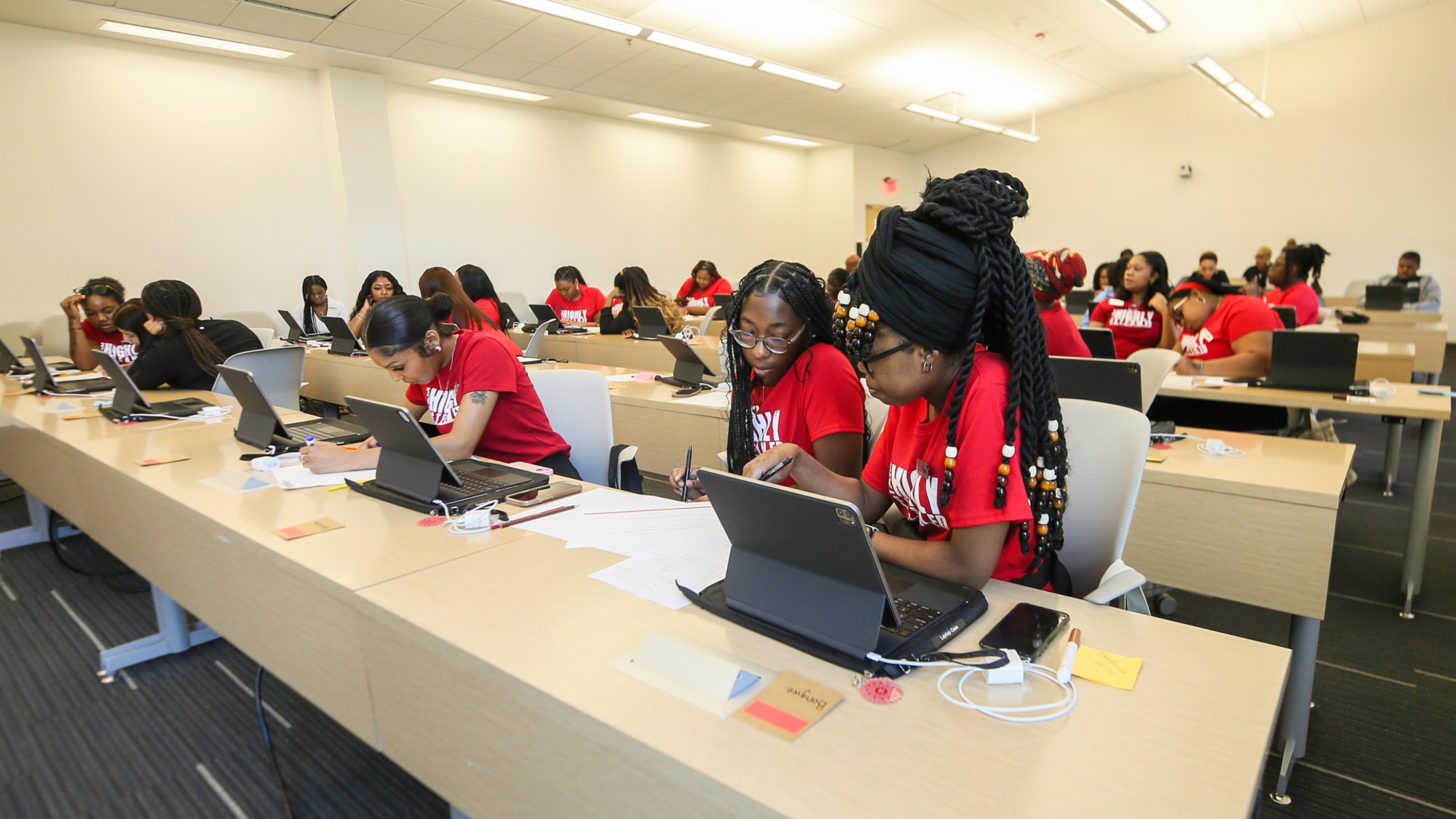Can more contraception really reduce poverty?
There are much more effective ways to assist low-income families, without discouraging the poor from having kids


Contraception: What is it good for?
Earlier this week, several liberals and leftists got in a debate about this question, with Catherine Rampell and Isabell Sawhill on the liberal side, and Matt Bruenig and Philip Cohen on the other. The liberals argue that contraception can reduce poverty, while the leftists argue that universal benefits are a far superior way to reduce poverty.
It's an esoteric argument, but an illuminating one. In brief, the leftists are right. For anyone committed to liberal principles, it's important to keep pro-contraception arguments distinct from anti-poverty ones.
The Week
Escape your echo chamber. Get the facts behind the news, plus analysis from multiple perspectives.

Sign up for The Week's Free Newsletters
From our morning news briefing to a weekly Good News Newsletter, get the best of The Week delivered directly to your inbox.
From our morning news briefing to a weekly Good News Newsletter, get the best of The Week delivered directly to your inbox.
Let's lay out the two sides. First, of course contraception should be part of any basic health care package, and everyone (but especially women) should have unlimited access to it. Both sides agree on this point. Sex is a bedrock part of human life, and people ought to have easy, cheap control over it. That is a given in any decent society — the U.S. isn't there yet, but might be someday.
The issue comes in how access to contraception is justified. Here's Rampell:
Having a child before you are ready to become a parent wreaks all sorts of havoc in your unexpectedly expecting life... It makes finishing high school or college much more difficult. Which in turn makes ever getting a better job more difficult. Which makes other income supports — including government transfer programs — more compelling, for both mom and baby. [The Washington Post]
There are a few things to sort out here. First, Rampell tut-tuts poor people using transfer programs to feed their kids, but virtually everyone uses government benefits of one sort or another for their children. There's the child tax credit, which can reduce your tax liability by up to $1,000 per child, and much more importantly, there's public school, which 90 percent of all children attend at a cost of over $11,000 per student per year.
There's nothing wrong with this, of course, because it would be virtually impossible for anyone but the very rich to handle all child expenses without benefits or public school. Children cost a ton of money, but they can't work. What's more, people's prime earning years are typically from about age 40 to 60, but their prime childbearing years are from 20 to 35 or so. Ordinary wage income is simply poorly suited for supporting families with children, particularly when both parents must work to make ends meet, as is nearly always the case today.
A free daily email with the biggest news stories of the day – and the best features from TheWeek.com
So why should government transfer programs for the poor like food stamps be presumed more undesirable and illegitimate than middle-class use of tax credits and public school? They are both the same kind of thing (government handouts) for the same purpose.
Second, there's the issue of the effect of poverty on children. Rampell (in line with Isabell Sawhill), argues: "Children brought into the world before their parents were financially or emotionally ready for them are likewise disadvantaged before they're even born, no matter how loved they are." The clear implication here is that poor people should not have kids. But it's worth thinking about the other side of the argument — that a child can help people achieve purpose and fulfillment in their life. Here's Ta-Nehisi Coates, for example:
Before [my son] Samori, I was a rather aimless ronin: a 24-year-old college dropout... For most of my conscious life I had failed at the thing that mattered most (school). There was no reason to suspect I'd be any different professionally. Still, to paraphrase an old friend, there was nothing in my background that justified being a bad father. And upon news that that was what I'd be, I threw myself into the preparations. It was fine for me to be a fuck-up. It was not fine for me to bequeath more fuck-ups to the world. I didn't know it at the time, but this was the start of me getting a "core." [The Atlantic]
I have no idea whether or not Coates was technically poor or not when he was 24. But I personally know quite a few low-income people who straightened out their lives on news that they were about to become a parent — though in many cases it made them technically more poor. A baby can be a force for self-improvement (not to mention for the adoption of liberals' beloved bourgeois norms) in addition to being a huge financial drain.
The conservative economist Robert Stein, who designed Marco Rubio's proposal for a child tax credit, told me it is "not designed to encourage fertility in the poor." It shares this characteristic with the Child Tax Credit, which deliberately excludes the very poor. The sentiment underlying the policy seems to be one shared by Rampell and Sawhill — that poor people already have too many kids, and should be nudged away from doing so if possible.
But there is good reason to think that they have their causation backwards. Poor people do have many more unplanned pregnancies, it's true (as well as more children in general). But instead of trying to coerce them away from childbearing by cutting them out of family benefits, we could arrange things such that anybody with a child will be at least over the poverty line. Cohen calculates it would cost $62 billion yearly. The likely result would be far fewer unplanned pregnancies, as people are more equipped for sensible planning and decisions. The teen pregnancy rate in Norway or Finland, where a generous child allowance has all but abolished child poverty, is less than half that of the U.S.
The point is to make sure that nobody would ever have to choose abortion or adoption because of a lack of income, accidental pregnancy or no. That is far superior to trying to knock the poverty rate down a couple points by handing out free IUDs, worthy though such a policy would be.
Ryan Cooper is a national correspondent at TheWeek.com. His work has appeared in the Washington Monthly, The New Republic, and the Washington Post.
-
 ‘We know how to make our educational system world-class again’
‘We know how to make our educational system world-class again’Instant Opinion Opinion, comment and editorials of the day
-
 Panama and Canada are caught in a dispute over a copper mine
Panama and Canada are caught in a dispute over a copper mineIn the Spotlight Panama is set to make a final decision on the mine this summer
-
 ‘Dark woke’: what it means and how it might help Democrats
‘Dark woke’: what it means and how it might help DemocratsThe Explainer Respectability be damned, some Democrats are embracing crasser rhetoric
-
 The billionaires’ wealth tax: a catastrophe for California?
The billionaires’ wealth tax: a catastrophe for California?Talking Point Peter Thiel and Larry Page preparing to change state residency
-
 Bari Weiss’ ‘60 Minutes’ scandal is about more than one report
Bari Weiss’ ‘60 Minutes’ scandal is about more than one reportIN THE SPOTLIGHT By blocking an approved segment on a controversial prison holding US deportees in El Salvador, the editor-in-chief of CBS News has become the main story
-
 Has Zohran Mamdani shown the Democrats how to win again?
Has Zohran Mamdani shown the Democrats how to win again?Today’s Big Question New York City mayoral election touted as victory for left-wing populists but moderate centrist wins elsewhere present more complex path for Democratic Party
-
 Millions turn out for anti-Trump ‘No Kings’ rallies
Millions turn out for anti-Trump ‘No Kings’ ralliesSpeed Read An estimated 7 million people participated, 2 million more than at the first ‘No Kings’ protest in June
-
 Ghislaine Maxwell: angling for a Trump pardon
Ghislaine Maxwell: angling for a Trump pardonTalking Point Convicted sex trafficker's testimony could shed new light on president's links to Jeffrey Epstein
-
 The last words and final moments of 40 presidents
The last words and final moments of 40 presidentsThe Explainer Some are eloquent quotes worthy of the holders of the highest office in the nation, and others... aren't
-
 The JFK files: the truth at last?
The JFK files: the truth at last?In The Spotlight More than 64,000 previously classified documents relating the 1963 assassination of John F. Kennedy have been released by the Trump administration
-
 'Seriously, not literally': how should the world take Donald Trump?
'Seriously, not literally': how should the world take Donald Trump?Today's big question White House rhetoric and reality look likely to become increasingly blurred
